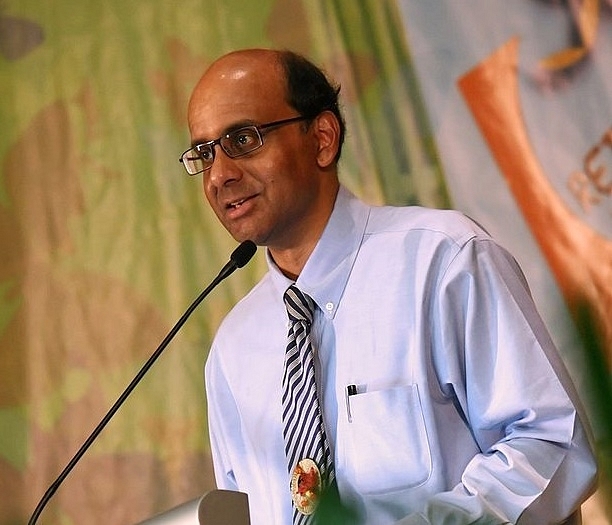Ideas
Singapore Dy PM Asks India To Shed The Culture Of Accepting Mediocrity
- The first lecture of an annual series introduced by Niti Aayog, titled ‘India in the Global Economy’, was delivered by Singapore’s Deputy Prime Minister Tharman Shanmugaratnam.

Wikimedia Commons
On 26 August, Prime Minister Narendra Modi inaugurated the first part of the annual lecture series introduced by Niti Aayog under the theme of Transforming India.
The first lecture of the series titled ‘India in the Global Economy’ was delivered by Singapore’s Deputy Prime Minister Tharman Shanmugaratnam. You can listen to the speech in the following video.
The following are the notable highlights of his speech:
1. The Deputy Prime Minister agreed with the words of PM Modi that India needs ‘rapid transformation and not gradual evolution’.
2. Shanmugaratnam said that India is in two races at the moment: one is a race against demography and another against intelligent machines. India needs to think and make an in-depth examination of the phenomenon of using Artificial Intelligence in governance, given the scale and numbers that need to be gainfully employed in the country. Doing that will ensure higher productivity and higher income for the country.
3. He urged India to move with urgency to achieve its potential. In his words, ‘8-10 percent growth rate is not a luxury, it will merely get India about 70 percent of the per capita income of China in 20 years’ time.’
5. Instead of focusing on ‘domestic demand’ , the Deputy PM asserted that the focus ought to be on supply - productivity and skills.
6. Citing the high dropout rate in upper primary schools, Shanmugaratnam said
schools are facing the “biggest crisis” in India-
‘Schools are the biggest crisis in India today and have been for a long time. Schools are the biggest gap between India and East Asia. And it is a crisis that cannot be justified…’
7. Shanmugaratnam made a very important point on cities being clusters of innovation and inclusivity. Hence there is a need to give them financial autonomy, empower them, hold them accountable and make them compete with each other.
Introducing ElectionsHQ + 50 Ground Reports Project
The 2024 elections might seem easy to guess, but there are some important questions that shouldn't be missed.
Do freebies still sway voters? Do people prioritise infrastructure when voting? How will Punjab vote?
The answers to these questions provide great insights into where we, as a country, are headed in the years to come.
Swarajya is starting a project with an aim to do 50 solid ground stories and a smart commentary service on WhatsApp, a one-of-a-kind. We'd love your support during this election season.
Click below to contribute.
Latest